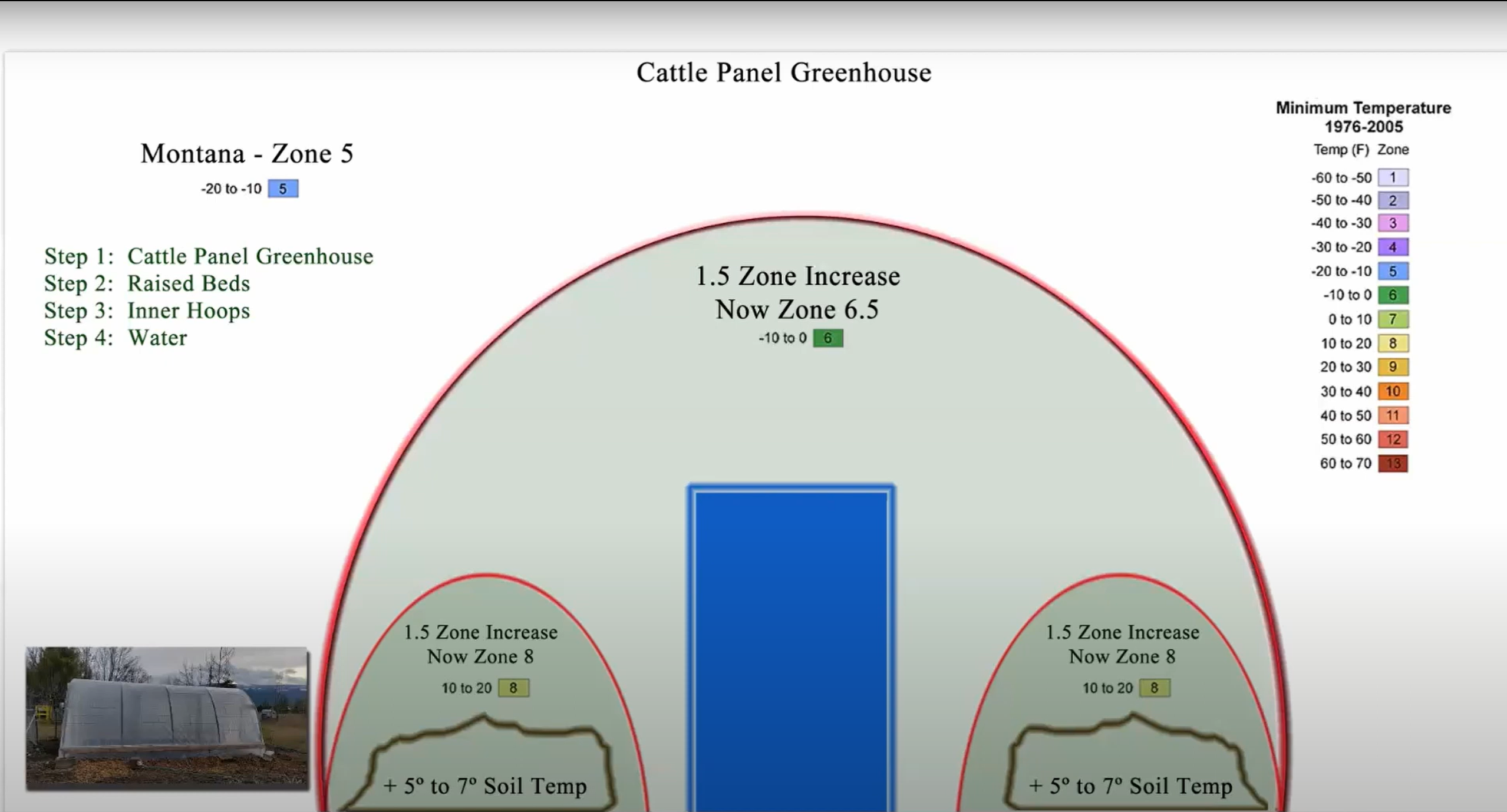Hoop Greenhouse Zones
The secret of success
The Game-Changer: Hoop Greenhouse
Today, we’re diving into how our hoop greenhouse has revolutionized our gardening approach, allowing us to extend the growing season and diversify the plants we can grow, right here in Montana. This journey is about fully utilizing our garden space and efforts to achieve remarkable results.
Choosing to add a hoop greenhouse was a decision that significantly changed our gardening landscape. In a place where winter temperatures can plummet to -20°F, maintaining a productive garden year-round seemed like a distant
dream. Yet, here we are, keeping our greens thriving even in the heart of winter.
Sharing Our Growth
Warmth from Raised Beds
Our secret starts with raised beds within the greenhouse. These aren’t just for organization; they elevate the soil temperature by 5 to 7 degrees above the surrounding ground level. This natural warmth is a boon for seed germination and sustains plant growth during cold snaps.
Layering: Boosting Our Zone
Enhancing the greenhouse with an additional layer of plastic covering over the raised beds was a strategic move. Each layer effectively increases our planting zone by 1.5, broadening the variety of plants we can sustain through the colder months.
Concrete Blocks: Thermal Storage
Integrating concrete blocks along the greenhouse’s walkways was another game-changer. They absorb heat during the day and release it slowly, providing a stable temperature that helps keep our lettuce crisp and thriving, even when outside temperatures hit -20°F.
Butterhead lettuce
Choosing cold loving lettuce helps. On half of the greenhouse we plant the lettuce in the fall for an early spring garden.
Extending the seasons
Tomatoes are hard in Montana. Our season is just not long enough. We start them in Feb/March and move out to the greenhouse. We do add a third layer of covering. Usually a 2 gallon bucket for colder nights.
Zuchini
One of our favorite plants! We start a zuchini in early summer to have late summer early fall squash. When the outside plants are frosted we get a few more pickings from the one or two plants.

This isn’t just about what we have accomplished; it’s about what we can achieve together in our gardening endeavors. Whether you’re in Montana or a similarly challenging climate, these strategies can offer a pathway to year-round gardening success.
Have you tried similar techniques in your garden? How do you navigate the challenges of your local climate? Let’s share our experiences and grow together.